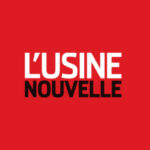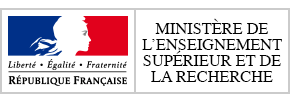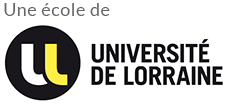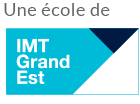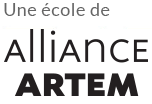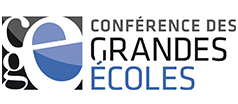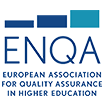Eight reasons to choose Mines Nancy
Differentiation and excellence
 Choose a large top-tier school ranked among the top 10 engineering schools in France, which helps you build yourunique, personalised pathway according to your personal career plan – over 400 courses to choose from, and 11 possible scientific pathways!
Choose a large top-tier school ranked among the top 10 engineering schools in France, which helps you build yourunique, personalised pathway according to your personal career plan – over 400 courses to choose from, and 11 possible scientific pathways!
Prepare for the challenges of tomorrow
 Choose a course ahead of its time, which will prepare you to meet the major challenges of tomorrow by offering the potential of 50 to 800 hours of teaching (out of 2,000 hours) dedicated to the ecological transition and sustainable development, depending on the degree of expertise you wish to acquire on the subject.
Choose a course ahead of its time, which will prepare you to meet the major challenges of tomorrow by offering the potential of 50 to 800 hours of teaching (out of 2,000 hours) dedicated to the ecological transition and sustainable development, depending on the degree of expertise you wish to acquire on the subject.
High scientific level
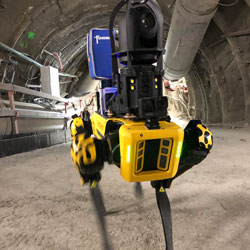
Benefit from cutting-edge scientific skills through direct links to six research laboratories (Materials, Energy, Mining and Natural Resources, Computer Science/Robotics, Mathematics, Artificial Intelligence, etc.) recognised internationally in the Shanghai ranking: 19th in the world for Mining Engineering and Minerals, 43rd for Artificial Intelligence and 49th for Metallurgical Engineering.
Spend time out of school in France and abroad
 Double or second degree, exchange, work placement, year out, volunteering in business… Make the most of the many possibilities available at the best institutions in France (SciencesPo Paris, Paris Dauphine, IFP School…) and abroad by spending at least six months abroad, taking advantage of our 80 university partnerships (Imperial College, UC San Diego, EPFL, etc.) and the option of choosing from over seven languages for your second (and optional third) modern language.
Double or second degree, exchange, work placement, year out, volunteering in business… Make the most of the many possibilities available at the best institutions in France (SciencesPo Paris, Paris Dauphine, IFP School…) and abroad by spending at least six months abroad, taking advantage of our 80 university partnerships (Imperial College, UC San Diego, EPFL, etc.) and the option of choosing from over seven languages for your second (and optional third) modern language.
ARTEM: the school of collective intelligence
 Experience collective intelligence within the Artem Alliance: a pioneering transdisciplinary concept combining Art, Science and Business, involving courses shared with ICN Business School and the National School of Art and Design in Nancy.
Experience collective intelligence within the Artem Alliance: a pioneering transdisciplinary concept combining Art, Science and Business, involving courses shared with ICN Business School and the National School of Art and Design in Nancy.
The Mines Nancy spirit
 Join a class on a human scale and benefit from a real school spirit, with half-class lectures (70 students) and tutorials in small groups (no more than 18 students), enabling truly personalised guidance and strong cohesion. The Mines Nancy spirit extends beyond the school, with an exceptional network shared between the Mines schools in Nancy, Paris and Saint-Étienne, which has more than 34,000 Alumni in work and offers many services to our graduates.
Join a class on a human scale and benefit from a real school spirit, with half-class lectures (70 students) and tutorials in small groups (no more than 18 students), enabling truly personalised guidance and strong cohesion. The Mines Nancy spirit extends beyond the school, with an exceptional network shared between the Mines schools in Nancy, Paris and Saint-Étienne, which has more than 34,000 Alumni in work and offers many services to our graduates.
Open-mindedness and student life
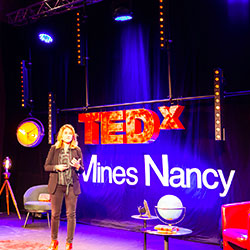 Find yourself through the many educational opportunities (humanities courses, managerial courses, etc.) and societies (40 clubs and associations), in a school that is resolutely open to social and cultural diversity and will allow you to express your uniqueness to the full: a school that is committed to everyone’s success on a daily basis!
Find yourself through the many educational opportunities (humanities courses, managerial courses, etc.) and societies (40 clubs and associations), in a school that is resolutely open to social and cultural diversity and will allow you to express your uniqueness to the full: a school that is committed to everyone’s success on a daily basis!
Nancy stands out!
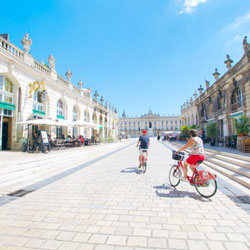 Discover Nancy: a city of more than 60,000 students (30% of the population), 90 minutes from Paris by TGV, located at the crossroads of Europe (Luxembourg, Germany, Belgium, Switzerland). Study in a dynamic city where life is good (reasonable cost of living, entertainment, outings, major events, etc.) on a high-tech campus located in the city centre, a 10-minute walk from the halls of residence, which offer an excellent environment with many on-site services (catering, student life, media library, sport, etc.) to make your daily life easier
Discover Nancy: a city of more than 60,000 students (30% of the population), 90 minutes from Paris by TGV, located at the crossroads of Europe (Luxembourg, Germany, Belgium, Switzerland). Study in a dynamic city where life is good (reasonable cost of living, entertainment, outings, major events, etc.) on a high-tech campus located in the city centre, a 10-minute walk from the halls of residence, which offer an excellent environment with many on-site services (catering, student life, media library, sport, etc.) to make your daily life easier
A school committed to social causes
Equality, Diversity, Inclusion – a winning trifecta!
Through its Equality, Diversity and Inclusion (EDI) office, Mines Nancy aims to combat discrimination, and especially discrimination based on gender, ethnicity, geographical origin, religion or belief, disability, age or sexual orientation. Both in our day-to-day activities and when teaching our students, the university strives to shape future professionals who are open-minded, embrace diversity and do what they can to stop discrimination.
Mines Nancy has a prevention, listening and support unit to deal with issues of discrimination and harassment.
Our actions:
- prevention and awareness initiatives for students and staff
- confidential listening, information and support for victims or witnesses of discrimination or harassment
- equal opportunities for admission to France’s Grandes Ecoles
Socio-ecological transformation
Always at the leading edge, Mines Nancy places growing importance on its educational activities to raise awareness about the challenges of the environmental and societal transition we are now embarked upon.
Its approach, at the interface between the school’s five scientific departments, sets it apart and makes students and professors genuine agents in this area.
The course prepares students for the major challenges of tomorrow by offering between 50 and 800 hours of teaching (out of a total of 2,000 hours) dedicated to the ecological transition, sustainable development and social responsibility (SDSR).
Here are a few examples of actions taken by and/or for
students:
- organising and chairing a series of SDSR presentations by second-year students for first-year students,
- series of SDSR masterclasses in the second year by big names in their fields, who come to present a topical subject, possibly controversial, from an original angle,
- the Climate Fresco serious game to raise awareness about the causes and consequences of climate change at the beginning of Y1
- “La Mine Verte” student ecological society
- school and campus carbon footprint calculation
The school has a socio-ecological transformation unit, which brings together staff and students from the school and is responsible for implementing the Management’s policy in this area and making proposals.
Mines Nancy in the rankings
Consistently ranked among the top 10 French engineering schools by the specialist press in France, Mines Nancy also stands out internationally in three subject-specific ARWU rankings.
In France :
2023 Change Now ranking
8th place in the list of engineering schools most committed to the ecological and societal transition published by Les Echos Start and Change Now in conjunction with Deloitte
2023 rankings
7th place in the L’Étudiant engineering schools ranking with a score of 111 points in 2023
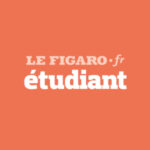
2023 rankings
15th place in the ranking of schools of excellence
1st place in the Energy/Environment subject-specific ranking
1st place in the Materials subject-specific ranking
International
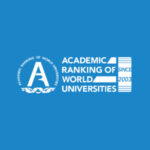
3 Shanghai subject-specific rankings highlight the reputation of the laboratories associated with Mines Nancy:
17th worldwide in Mining and Mineral Engineering
51st worldwide in Metallurgical Engineering
76th worldwide in Artificial Intelligence
NEW: German-speaking section
Located an hour from Germany and Luxembourg, Mines Nancy launched a German-speaking section in September 2022 to train engineering students in intercultural awareness and the business culture of the German-speaking world, and to meet the needs of French and German companies in terms of recruiting profiles with strong skills, mastering both languages and familiar with both cultures.
The German-speaking section: an additional asset in your syllabus
Thanks to its geographical position in the Grand Est region, at the crossroads of Europe and very close to several German-speaking countries (Germany, Austria, Luxembourg, Switzerland), Mines Nancy offers a German-speaking section within the Mines Civil Engineering course (after two or more years of higher education) to offer interested students the possibility of deepening their knowledge of the language and business culture of the German-speaking world. This German-speaking section responds to a real business need for qualified staff who speak both German and French.
- German is the second most-requested language on the job market in Europe, after English*
- 4,000: the number of vacant German-speaking managerial positions in France.
What is the German-speaking section at Mines Nancy?
It allows German-speaking students to join the Mines Civil Engineering course at Mines Nancy (after two or more years of higher education) with a bilingual, bicultural syllabus.
The German-speaking section is based on the standard Mines Civil Engineering course at Mines Nancy, with certain modules, project slots and internships taught in German for in-depth study of the German language, the business culture of the German-speaking world and cultural immersion. The school’s German-speaking section is offered in collaboration with the Goethe Institut and the Nancy campus of Sciences Po Paris and its Franco-German European programme.

The German-speaking section covers the school’s five scientific pathways: computer science, industrial engineering and applied mathematics, geosciences and civil engineering, energy, and materials.
Who is it for?
- The German-speaking section is aimed at students who are already familiar with the German language and have at least a B1+ level
- Registration takes place from the first year and covers the entire course, i.e. three years
The principle?
Integrated into the Mines Civil Engineering course, students enrolled in the German-speaking section have dedicated teaching time in order to:
- integrate the two French-speaking and German-speaking cultures
- gain intercultural experience during the three years of study
- meet business needs
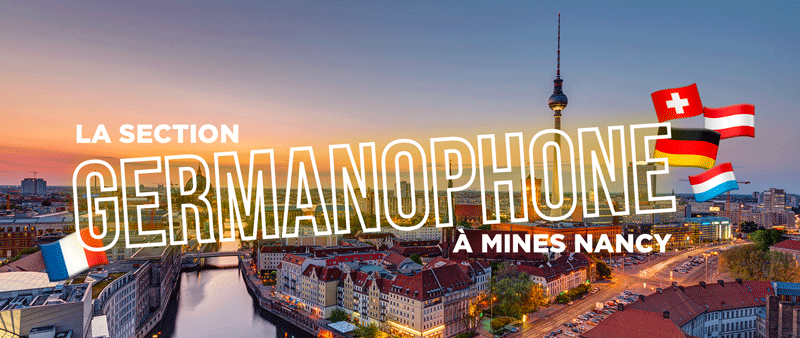
|
|
Y135% of the German-speaking course |
Y260% of the German-speaking course
|
3A |
|
Intensive German language classes |
60h |
60h |
100% German-speaking curriculum |
|
Intercultural classes and German language immersion |
85h |
85h |
|
|
Educational trips and seminars |
✔ | ✔ | |
|
Work placement in a German-speaking country |
✔ |
✔ |
|
|
Out-of-school academic pathway |
– |
✔ |
Pluses
- regular, personalised exchanges with the network of alumni working in German-speaking countries
- the support of a network of leading industrial and academic partners
- preparation for external certification (Zertifikat Deutsch) at level B2 or C1
- presentations by German-speaking professionals from the worlds of business, the arts and politics within the framework of intercultural classes
- cross-border educational outings (study trip, seminar)
- option of doing the first-year project in collaboration with a bilingual school in the city of Nancy
- humanities classes taught at Sciences Po Nancy
- conversation workshops at the University of Lorraine and the Nancy campus of Sciences Po Paris
- participation in joint lectures with the Goethe Institute in Nancy
A leading academic and business network
The German-speaking section draws from a pool of top-flight industrial and academic players to promote students’ academic and professional mobility.
Academic |
Companies |
|
École Polytechnique Fédérale de Lausanne • Hochschule Mannheim • Karlsruher Institut für Technologie (KIT) • TU München • Technische Universität des Saarlands • Universität Stuttgart • Université de Neuchâtel |
Adidas • Airbus • AKKA • ArcelorMittal • Ariane Group • Banque du Luxembourg • BASF • BMW • Bosch • Commerzbank • DAIMLER • Deloitte • Eifer • Elca Informatique • EnBW • Faurecia • Forschungszentrum Jülich • Forwind • Fraunhofer • Helmholtz Zentrum • Henkel • Heraeus • Hutchinson • John Deere • KPMG • Magna • Max Planck Institut • Michelin • Ohb-System • OMV • Planisware • Porsche • Safran • Saint Gobain • Schaeffler • Siemens • Sirail • TTK • Voestalpine • Zalkin |
Admission:
Registration for the German-speaking section takes place once the student has joined Mines Nancy. A presentation will be made at the start of the academic year and the choice must be made during the first week.
First year
Y1: 40% free choice of courses
The first year of study enables you to acquire general scientific knowledge and the skills to apply it.
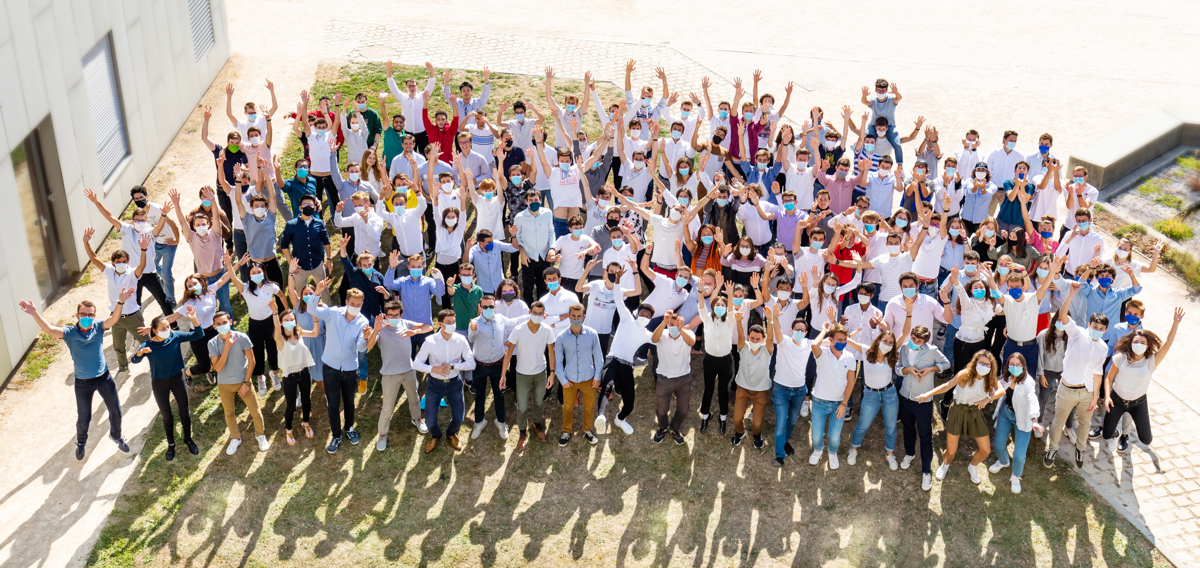 The first year consists of :
The first year consists of :
- 1 scientific common core
- 1 managerial common core
- Humanities courses: art and aesthetics; philosophy and law; culture and civilizations; science, technology and society
- A choice of modern languages: ML 1 English, ML2 (Spanish, German, Russian, Chinese, Japanese, Portuguese, Italian) + ML3 of your choice
- Projects
- Sport: basketball, fencing, yoga, swimming, volleyball, climbing, badminton, ultimate, tennis, salsa, cross-fit)
- First-year work placement: one-month placement as a technician
Pluses :
- Discovering the engineering professions through meetings and conferences led by business executives;
- Discovering the business world through company visits and a four-week work placement;
- Discovering society by taking part in hands-on projects and the “Artem, together towards success” programme;
- Discovering research through the school’s seven partner laboratories.
Second year:
Y2: 70% free choice of courses
From the second year, you can build your personalised syllabus by choosing a scientific pathway incorporating classes in disciplinary specialisms together with the management of a team project.
Choice of 13 pathways :
- Energy
– Fluids
– Processes and Environment
– Energy Transition - Computer Science
– Robotics
– Cybersecurity - Geoscience and Civil Engineering
– Civil Engineering
– Mining Engineering - Industrial Engineering and Applied Mathematics
– Mathematical Engineering
– Engineering of Decision and Production Systems - Materials Science and Engineering
– Innovative Alloy Design
– Biomaterials Engineering
– Materials, Devices and Energy
Choose from :
- 28 elective courses
- 5 scientific departments
- 4 humanities themes
- 10 managerial sectors
- 4 pathways
Choice of whether to do an Industry project or a Research project
Second-year work placement: assistant engineer placement for three months
Pluses :
- The choice of a scientific pathway supported by the teams in the teaching departments
- The choice of in-depth scientific and technological, interdisciplinary or intercultural “elective” courses that complement and open up your studies to specific fields
- The choice of an Artem workshop, enabling you to work on a complex, interdisciplinary project with students from the other two schools
- The research pathway, which allows you to carry out a research project in a partner laboratory with a view to a first scientific publication
- The possibility of enriching your studies with lessons in management, humanities and foreign languages and cultures
Third year
Y3: 90% free choice of courses
The third year deepens your knowledge and guides you towards your planned career.
Focus on the third year
- The continuation of the pathway chosen in the second year (out of the 13 available)
- Choice of nine languages
- Choice of nine elective courses + managerial common core + end-of-study project
- Choice of four managerial and economic sectors
- “Grands Témoins” lectures by important figures
- One six-month Engineering work placement in a company or laboratory
Pluses :
- Spend the third year in a different French engineering school: 75% of students do Y3 out of school;
- Obtain a second Master’s degree by continuing your studies at another French or international institution;
- Continue with an academic semester in France or abroad, followed by a work placement (or vice versa if the academic exchange takes place in the southern hemisphere);
- Take a sabbatical or gap year between the second and third years.
German-speaking section
Located an hour from Germany and Luxembourg, Mines Nancy launched a German-speaking section in September 2022 to train engineering students in intercultural awareness and the business culture of the German-speaking world, and to meet the needs of French and German companies in terms of recruiting profiles with strong skills, mastering both languages and familiar with both cultures.
The German-speaking section: an additional asset in your syllabus
Thanks to its geographical position in the Grand Est region, at the crossroads of Europe and very close to several German-speaking countries (Germany, Austria, Luxembourg, Switzerland), Mines Nancy offers a German-speaking section within the Mines Civil Engineering course (after two or more years of higher education) to offer interested students the possibility of deepening their knowledge of the language and business culture of the German-speaking world. This German-speaking section responds to a real business need for qualified staff who speak both German and French.
- German is the second most-requested language on the job market in Europe, after English*
- 4,000: the number of vacant German-speaking managerial positions in France.
What is the German-speaking section at Mines Nancy?
It allows German-speaking students to join the Mines Civil Engineering course at Mines Nancy (after two or more years of higher education) with a bilingual, bicultural syllabus.
The German-speaking section is based on the standard Mines Civil Engineering course at Mines Nancy, with certain modules, project slots and internships taught in German for in-depth study of the German language, the business culture of the German-speaking world and cultural immersion. The school’s German-speaking section is offered in collaboration with the Goethe Institut and the Nancy campus of Sciences Po Paris and its Franco-German European programme.

The German-speaking section covers the school’s five scientific pathways: computer science, industrial engineering and applied mathematics, geosciences and civil engineering, energy, and materials.
Who is it for?
- The German-speaking section is aimed at students who are already familiar with the German language and have at least a B1+ level
- Registration takes place from the first year and covers the entire course, i.e. three years
The principle?
Integrated into the Mines Civil Engineering course, students enrolled in the German-speaking section have dedicated teaching time in order to:
- integrate the two French-speaking and German-speaking cultures
- gain intercultural experience during the three years of study
- meet business needs

|
|
Y135% of the German-speaking course |
Y260% of the German-speaking course |
Y3 |
|
Intensive German language classes |
60 hrs |
6 hrs |
100% of the German-speaking course |
|
Intercultural classes and German language immersion |
85 hrs |
85 hrs |
|
|
Educational trips and seminars |
✔ | ✔ | |
|
Work placement in a German-speaking country |
✔ |
✔ |
|
|
Out-of-school academic pathway |
– |
✔ |
Pluses :
- regular, personalised exchanges with the network of alumni working in German-speaking countries
- the support of a network of leading industrial and academic partners
- preparation for external certification (Zertifikat Deutsch) at level B2 or C1
- presentations by German-speaking professionals from the worlds of business, the arts and politics within the framework of intercultural classes
- cross-border educational outings (study trip, seminar)
- option of doing the first-year project in collaboration with a bilingual school in the city of Nancy
- humanities classes taught at Sciences Po Nancy
- conversation workshops at the University of Lorraine and the Nancy campus of Sciences Po Paris
- participation in joint lectures with the Goethe Institute in Nancy
A leading academic and business network
The German-speaking section draws from a pool of top-flight industrial and academic players to promote students’ academic and professional mobility.
Académique |
Companies |
|
École Polytechnique Fédérale de Lausanne • Hochschule Mannheim • Karlsruher Institut für Technologie (KIT) • TU München • Technische Universität des Saarlands • Universität Stuttgart • Université de Neuchâtel |
Adidas • Airbus • AKKA • ArcelorMittal • Ariane Group • Banque du Luxembourg • BASF • BMW • Bosch • Commerzbank • DAIMLER • Deloitte • Eifer • Elca Informatique • EnBW • Faurecia • Forschungszentrum Jülich • Forwind • Fraunhofer • Helmholtz Zentrum • Henkel • Heraeus • Hutchinson • John Deere • KPMG • Magna • Max Planck Institut • Michelin • Ohb-System • OMV • Planisware • Porsche • Safran • Saint Gobain • Schaeffler • Siemens • Sirail • TTK • Voestalpine • Zalkin |
Admission :
Registration for the German-speaking section takes place once the student has joined Mines Nancy.
Projects
40% of study time devoted to projects
Assignments, projects (at least four during the three years of study) and work placements alone represent 40% of the total study time.
First-year projects
The objective is to experience project management situations that involve structuring a concrete response to a complex and sometimes evolving problem. Active teaching confronts groups with various situations to be analysed, from the initial idea to the joint construction of the project in collaboration with a partner. At the end of this activity, future engineers will be able to understand the project management process and learn lessons that will be valuable in the second and third year and in their professional life.
Second-year projects
These projects are resolutely focused on a concrete industrial and/or experimental problem with the following essential objectives:
- Enabling students to work in small groups of two or three on an industrial and/or experimental problem provided by a company or a research laboratory.
- Interacting as closely as possible with the industrial partner (contacts, visits, mid-project presentation, final report, etc.).
- Encouraging projects that include an experimental part carried out by the students in the laboratory.
- Providing experience of project work under the responsibility of the School’s academic tutor, taking industrial imperatives into account where applicable.
- Implementing the scientific and technical knowledge of the departments the students are attached to and how this knowledge is developed and used.
Third-year projects
Conducting a research project ambitious enough that the students are confronted with a research problem (why) and learn about how it may differ from an engineering problem (how), within limits ensuring the project is feasible.
Exceptional projects
Always on the lookout for new technologies, the school offers its engineering students the opportunity to work with the latest technological advances, such as the quadruped robot SCAR, the transport of tomorrow URBANLOOP and 5G – projects that bring together students, teaching and research staff and industrialists.
Scar, the quadruped robot
Mines Nancy is the first school to make available to its students this tool that epitomises the technological breakthrough in robotics, named SCAR (Système Complexe d’Assistance Robotisée, or Complex Robotic Assistance System).
The robot feeds into many student projects responding to real industrial problems, and allows students to handle the best of technology and work on multiple applications such as:
- robotics and artificial intelligence in complex environments
- multi-robot and robot/drone collaboration
- the development of embedded equipment
Urbanloop, the transport of tomorrow
Urbanloop is an innovative future mobility project whose ambition is to meet the challenges of the ecological transition. With political and industrial support at the highest levels, it will be deployed at the Paris 2024 Olympic Games and in the Greater Nancy urban area.
Over 90 students from the school have already taken part in the Urbanloop adventure through workshops and projects, explaining the science to the public, designing the capsules, analysing the environmental, technical and human risks, etc.
True to our commitment to the ecological transition, Mines Nancy achieved the goal of setting the world record for the lowest energy consumption per kilometre in the presence of Jean-Baptiste Djebbari, the Minister of Transport, on 28 May 2021.
5G

At the start of the 2021 academic year, Mines Nancy became the first major engineering school equipped with an industrial 5G network in partnership with Nokia. For our engineering students, this is an opportunity to familiarise themselves with a breakthrough technology and learn about the development of innovative applications before they reach the job market. This will equip them to anticipate new uses of this technology, which is presented as the backbone of our societies and our economies.
Work placements
The Mines Nancy courses include three compulsory work placements, which take place in France or abroad, depending on the engineering student’s choice, over a minimum period of nine months, including a minimum of six abroad.
First year: work placement as a technician
Duration: one month (in February)
Goals: Acquiring general knowledge, discovering the economic world
The first-year work placement is a chance to discover the business world and working life more broadly. It is an opportunity for the student to understand business organisation (structure, roles, hierarchy, social relations, circulation of information, etc.) and begin a personal exploration of business life and functions.
Second year: work placement as an assistant engineer
Duration: three months (from mid-June to mid-September)
Goals: Putting together a personalised educational pathway and discovering complexity.
The second-year work placement is the engineering students’ first opportunity to apply their knowledge, join a project team and acquire skills such as organisation, analysis, design and team leadership. It is a chance to put their technical knowledge to the test and take initiatives.
Third year: end-of-study work placement as an engineer
Duration: six months minimum (from February to September)
Goals: Deepening knowledge, preparing for the profession and the chosen field of activity.
The end-of-study work placement in business enables the student to fulfil an assignment as a general engineer as part of a team, within which they will have to negotiate and convince, train and inform, be a driver of change and be creative.
The trainee must work to achieve the objectives set in terms of time, cost and quality and record their work in a report to be presented publicly.
Languages
Foreign languages and cultures in Nancy
Fluency in at least two languages and the discovery of foreign cultures are an essential component of engineering studies and constitute one of the declared objectives of the teaching provided at Mines Nancy.
With this in mind, students are expected to:
- take classes in English, which are compulsory for all;
- continue studying the other language learned in secondary education, or start a new language.
It is also possible to study a third optional language (from the first year or in the third year).
Language teaching corresponds to approximately 20% of total teaching. It places great importance on the cultural dimension, and aims to lead the engineering student gradually from the learning stage to the status of a true user of the language. This is why language teaching is based on lessons and self-directed learning under the guidance of a contact teacher.
Learning sign language
Already committed to the theme of disability and equal opportunities, Mines Nancy is enriching its language teaching by offering a sign language course, starting last September, which has already attracted 15 engineering students!
On the initiative and at the request of first-year students, Mines Nancy set up a French sign language course (LSF) at the start of the academic year in September 2021. A group of about fifteen students take this class, led every Wednesday by a deaf-mute teacher.
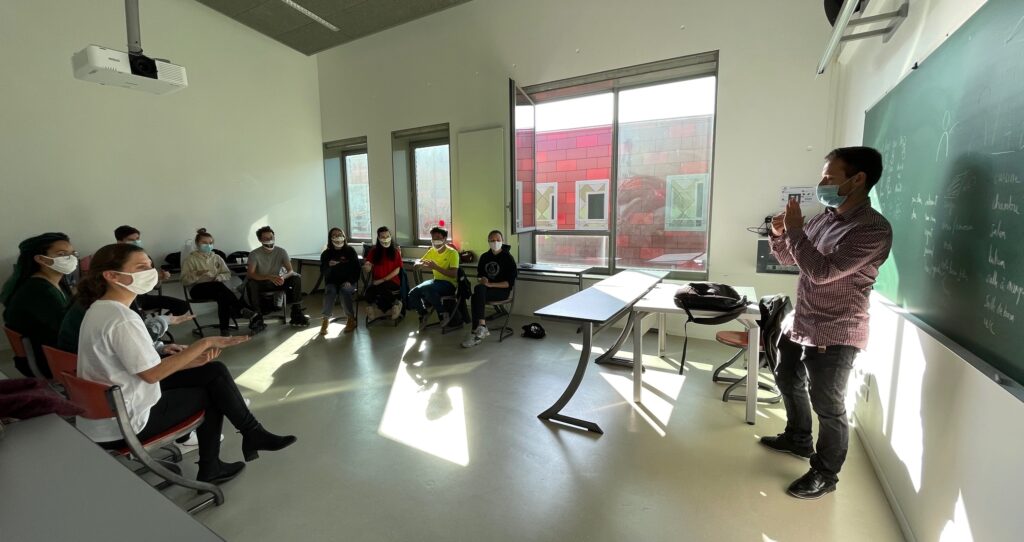
To understand their approach, we asked our engineering students about their motivations for taking this class and the benefit they take from it in professional and personal terms:
-
What were your motivations for joining the LSF course?
Léna M.
-
What does this class bring you, learning this new language?
Artem
Artem: collective intelligence in all its complexity
Mines Nancy’s Mines Civil Engineering curriculum shares common interdisciplinary aspect with ICN Business School and the National School of Art and Design (ENSAD) in Nancy.
ARTEM CREATIVE DAYS (CDAYS) :
In the first year, as soon as the academic year begins, the 500 students of the Artem Alliance take part in a creativity seminar with five modules:
- “Creativity and Design” about generating ideas
- “Project and Development” about methods of putting ideas into practice
- “Business” about the strategic design and development of a business model
- “Communication” about presenting and advocating a project to a team of experts
The goal is to make students think about and question ways of thinking, which are still too stereotyped, as soon as they enter university.
The Artem programme is divided into two parts:
- an ARTEM workshop (a multidisciplinary project constructed jointly with ICN and ENSAD), one day a week
- a scientific project proposed by the department to which the student belongs (half a day per week)
This project is optional, and the engineering student can choose between four available pathways.
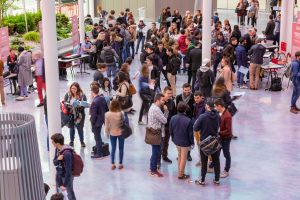 The Artem programme is:
The Artem programme is:
A cross-cutting project within a multidisciplinary, multi-sector team, based on new issues in research or issues with a close connection to the local area.
Conditions:
- Duration: 12 months (one and a half days per week)
ARTEM INSIGHT
Artem Insight is a week-long seminar that immerses third-year students in problems suggested by companies and organisations in order to capture, analyse and propose directions for thinking and responses to the challenges posed.
The goal is to initiate a mutual transfer of skills between students and companies and give the organisation an informed, well-argued response from professional engineers.
Entrepreneurship
The Entrepreneurship Pathway
From idea to product to the creation of a company or start-up
From the start of the 2021 academic year, the school offers second-year students wishing to embark on an entrepreneurial adventure the chance to take a dedicated course lasting one and a half days per week.
These students benefit from:
- personalised coaching from a mentor
- specific classes (patent filing, management, HR management, etc.)
- dedicated speakers
 To support this openness to entrepreneurship, all Mines Nancy students can benefit from student-entrepreneur status and use the support and resources of the Lorraine Student Entrepreneurship Centre (PEEL).
To support this openness to entrepreneurship, all Mines Nancy students can benefit from student-entrepreneur status and use the support and resources of the Lorraine Student Entrepreneurship Centre (PEEL).
The course can be extended into the third year as part of a “business development” gap year, providing the time needed to develop the project.
Conditions:
- Duration: 12 months (one and a half days per week)
- Group of two to four students.
- In partnership with PEEL.
Links with research
Top-rank science
At Mines Nancy, engineering students learn skills up to date with the latest scientific knowledge. 95% of classes are delivered by teaching and research staff.
Internationally recognised research
The laboratories of the University of Lorraine are consistently recognised in the Shanghai ranking (2020 Shanghai ranking):
- 17th worldwide in Mining and Mineral Engineering
- 51st worldwide in Metallurgical Engineering
- 76th worldwide in Artificial Intelligence
Ticket for research
Second-year engineering students have the opportunity to complete a Research Course in one of the School’s seven laboratories for one and a half days per week.
The student conducts a project alongside a researcher with the aim of publishing a scientific article. The course can be extended with a 12-week laboratory placement abroad between the second and third years. It can also lead to the validation of a Master’s degree, especially for students wishing to pursue a Doctoral thesis.
Conditions:
- Duration: 12 months (one and a half days per week)
- Possible extension with a placement in a laboratory abroad for three months.
Links with industry
Industry course
The industry course is a new opportunity for students to confront the technical and economic world. It is a project-based educational activity that aims to respond to a scientific or technological problem in industry defined by a partner company of the school.

The theme of the project is chosen by the company in consultation with the school through one or more supervising teachers. The project will be the subject of one or more deliverables defined beforehand (computer program, report, etc.).
Conducted in partnership with a company, the project is the subject of an agreement signed by the students, the school and the company in order to set out the regulatory framework for the collaboration. The projects proposed are based on the specific technical skills acquired in the departments and on interdisciplinary skills relating to all the school’s scientific departments.
Conditions:
- Duration: two semesters (one and a half days per week)
- Group: two to four students.
- Possible extension with a placement in a laboratory abroad for three months
Over 300 companies close to students
Over 300 companies of all sizes support the development of the School. The companies contribute to educational developments. Throughout the course, they inject projects, work placements, industrial site visits, conferences, etc. They are particularly involved through the network of Alumni, who actively participate in exchanges with students. These exchanges include student-alumni meet-ups and study trips to companies.
Personal and professional support
Bespoke support!
The support system in place to help Mines Nancy engineering students with their personal and career plans is based on several combined programmes, alternating individual and group phases throughout the course. It involves the teaching staff, the course managers and the education managers, overseen by a careers manager who organises planning sessions through the duration of the course.

A personal tutoring system in which teachers support students is provided from the first year. Visits to companies and research laboratories, student-alumni meet-ups, bimonthly Alumni sessions, the Forum Est-Horizon, departmental presentations and the departmental weeks are all opportunities to fine-tune career plans, while industrial projects and learning in connection with employers are all ways to turn students’ ideas into concrete reality. They are offered individualised support to ensure their choice of departments, work placements and projects is as consistent as possible with their ambitions.
As part of the individualised support programme in place for personal and career plans at Mines Nancy, overseen by Ulrike Braun, in charge of student orientation and employability, several events take place throughout the year:
Alumni presence
For the last five years, Alumni have made themselves available to students to discuss their career plans, help them network, provide knowledge of the business world, talk about CVs/cover letters, etc. These are individual, confidential interviews.
HR day
To improve final year students’ employability, recruitment interviews have been organised for several years as part of the self-assessment of skills.
Student-alumni meet-ups
Informal gatherings between alumni and current students, co-organised with students (BDE, Junior Entreprise, Forum Est Horizon, MiNE). Ambassadors meet up with students to help them define their career plan by sharing information about their current job, the business sector they work in, their academic career at the university and how this ties in with their career progression. The student-alumni meet-ups were started in 2008 and since then have brought together almost 300 alumni over 20 seasons.
1 day, 1 alumni, 1 Mines student
Volunteer students have the chance to shadow the daily life of an Alumni for a day. This rewarding experience gives students the opportunity to compare the theoretical notions regarding different engineering professions addressed during the course with the reality on the ground and benefit from the experience of a former student from the same school.
Energy
Overview
Faced with the growth of the global population, environmental problems and the depletion of fossil fuel resources, our societies must engage with the energy transition by developing their ability to produce or process alternative fuels (more available, profitable and acceptable for the environment, such as hydrogen, biomass, coal, etc.) and fissile fuels for the nuclear industry. It is also necessary to develop renewable energy sources such as wind and hydraulic power.
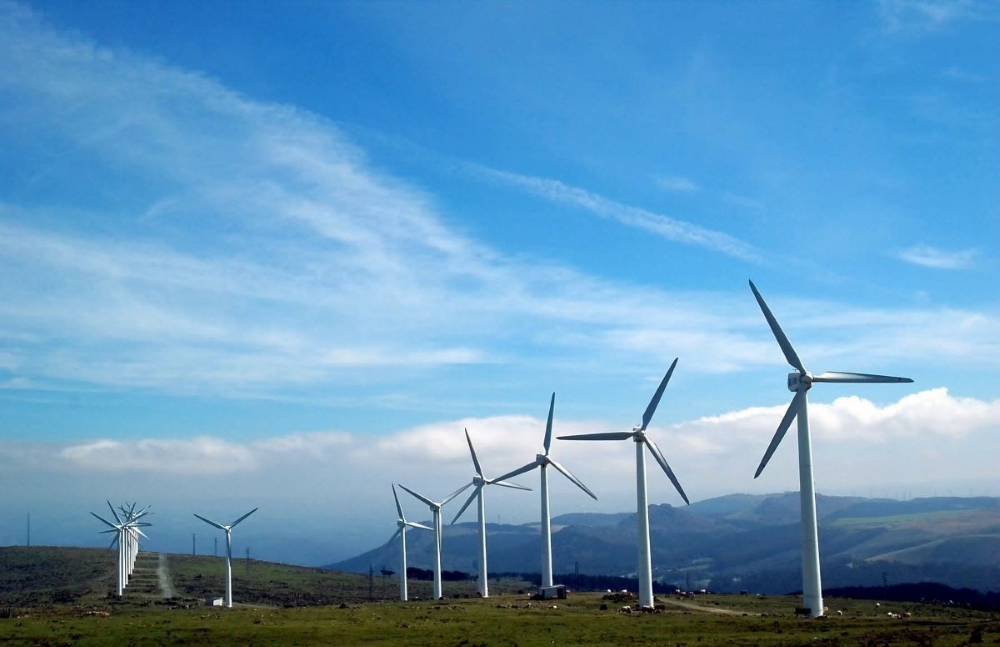
At the same time, industrial processes and energy conversion and storage facilities must adapt to the use of new raw materials and energy vectors and limit their impact on the environment. These new requirements are in addition to those of the market, which are expressed in terms of both cost and product quality.
The optimisation of existing processes and the development of new technologies and new industrial sectors are thus essential solutions for responding to energy and environmental challenges. These efforts also involve the automotive, aeronautics and housing sectors. The Energy department offers three training pathways in this context: “Fluids”, “Energy Transition” and “Environment Processes”. The courses in the department are organised around a matrix structure, with two thirds of the teaching in core modules defined by the course and one third in modules chosen from the other pathways.
Computer Science
Overview
The Computer Science department at Mines Nancy provides theoretical and practical courses covering the very broad spectrum of current digital themes.
We are committed to teaching our students to learn for themselves and to adapt to the various developments in our field. Our objective is to train “T-shaped people” – engineers with a broad scientific culture and proven skills in many scientific fields (illustrated by the horizontal bar of the “T”). But these engineers must also be able to be extremely efficient in a specific area (corresponding to the vertical bar of the “T”).

In the Mines Civil Engineering degree, the Computer Science department provides a common core course in IT in the second year and two separate pathways in the third year:
- AIS: Artificial Intelligent Systems
- CS : CyberSecurity
The department’s teaching places skills, experimentation, theoretical foundations and the ability to work independently at the heart of its objectives. In order to best prepare students for the huge diversity of fields in which computers are applied in the professional world, the department emphasises fundamental concepts:
- the design of complex computer system architectures (hardware and software)
- the organisation and modelling of these systems
- the mutual interactions between these systems and with their environment
- extracting and structuring the information produced or processed by these systems
- the preventive and corrective security of these systems
Students are given the opportunity to fine-tune their studies by choosing personal projects that will deepen their knowledge of specific subjects. These projects are developed in an environment designed for creating and transmitting knowledge: the Techlab. The course content is organised into modules of seven or fourteen sessions. The fundamental modules, which are essential for the engineering profession, are delivered to the whole class. The specialist modules are offered depending on the chosen pathway.
Geoscience and Civil Engineering
Overview
The Geoscience and Civil Engineering department (formerly the Geoengineering department) is one of the historical departments at Mines Nancy. Its scope encompasses roles involving civil engineering, land use planning, resource exploitation, environmental management and risk management.

The department relies on educational methods based on case studies and projects. The teaching aims, first of all, to develop the ability to observe, represent and interpret complex objects or structures related to the ground and the subsoil: tunnels, bridges, buildings, mines, quarries, linear transport infrastructure, etc. It then aims to develop the ability to model them with the goal of specifying their dimensions or predicting their behaviour. Finally, it examines the issue of assessing and managing the risks posed to human activities by the environment, or to the environment by human activities.
The knowledge base is constructed from lessons in geology for engineers, geotechnics, digital modelling, geophysics, hydrogeology and structural mechanics. In the final year, the department offers in-depth studies related to risk management in civil engineering and mining engineering.
#Visit the Geoscience and Civil Engineering department website
Industrial Engineering and Applied Mathematics
Overview
The Industrial Engineering and Applied Mathematics department (GIMA) brings to life two major options (particularly in terms of student numbers) at the school: Mathematical Engineering (IM) and Decision and Production Systems Engineering (ISDP).

Its objective is to train engineers capable of designing models and analysing systems with a view to improving the productivity, logistics, costs, etc. of a company in any field of activity using sophisticated mathematical and computer-based decision-support tools. Another task of the GIMA department is to organise the school’s Common Core courses in mathematics, operational research and statistics.
Materials
Overview
The department offers its students high-level general scientific teaching in the field of Materials Science and Engineering. Above all, it prepares them to become the engineers of tomorrow, capable of developing, producing and marketing new and increasingly efficient materials that build on all the major transitions such as Digital, Industry 4.0, Engineering for Health and Sustainable Development.
Courses are provided for the degrees of Mines Civil Engineering (FICM), Industrial Engineering and Materials (GIM) and Mechanical Engineering, Design Engineering pathway (FIIC) (initial or continuing) alongside short continuing education courses.
For FICM, the courses are divided into three pathways that cover a very wide range of materials and applications. The three major classes of materials, namely metals and alloys, polymers, and ceramics (and all their composites), are treated from the viewpoint of both their structural properties (mechanical) and their functional properties (physics/chemistry of surfaces and solids). The applications addressed correspond to today’s major societal challenges, including energy, health, the environment and transport.
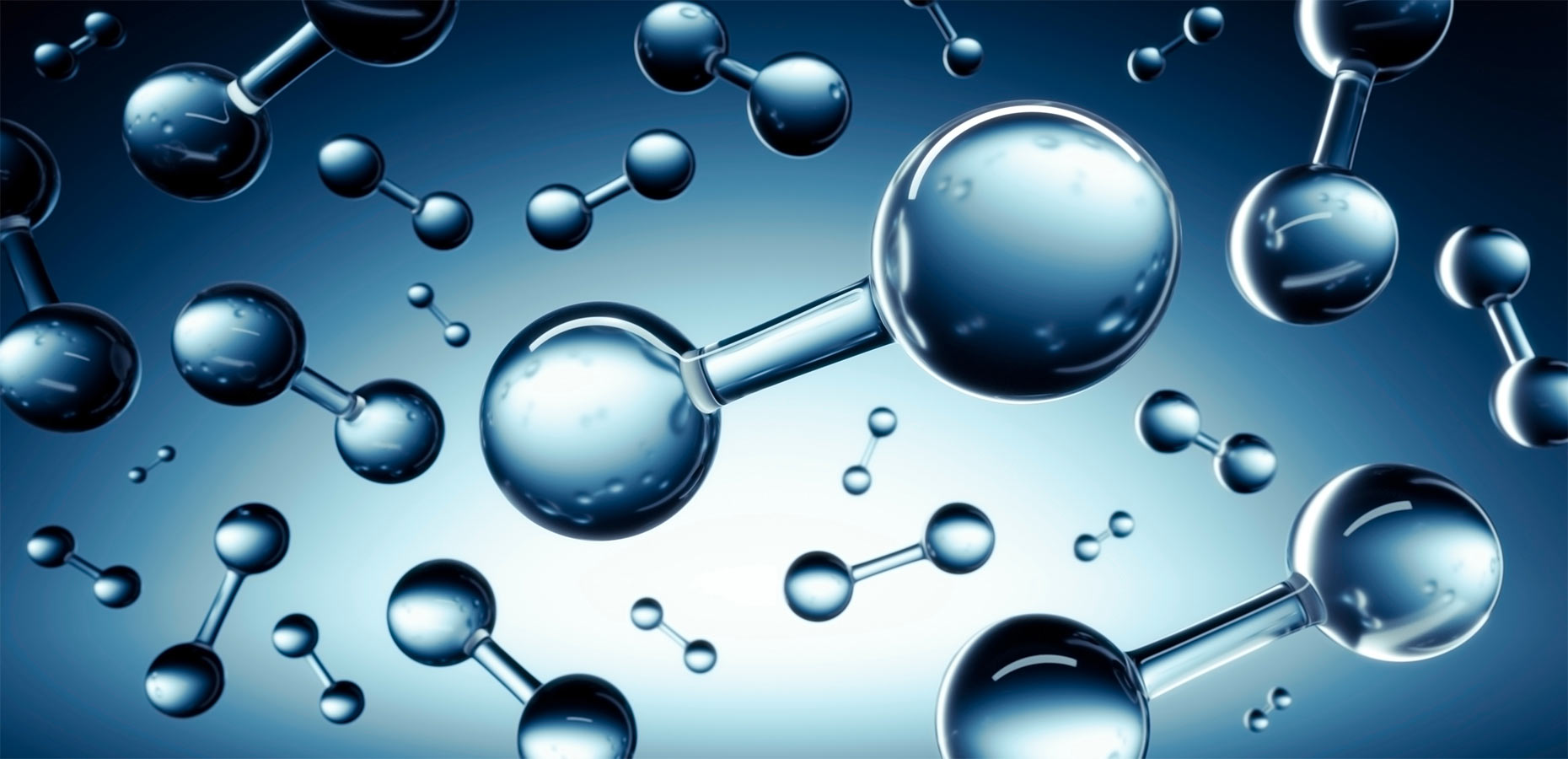
The three pathways are:
- DAI: Innovative Alloy Design
- IBM: Biomaterials Engineering
- MDE: Materials, Devices and Energy
These three pathways are not completely separate, as students must take a foundation of common core courses in S7 and S9. Some courses are also shared between the pathways. Above all, the pathways offer in-depth studies in certain fields of physics and materials.
The pathway of courses opens up in S8 and S9. Students thus have to choose their pathway at the end of S7. The choice of courses (outside the pathway) can still be adjusted to best support the students in their ambitions and career plans (subject to validation by the course and departmental managers).
Finally, it should be noted that the department’s S9 is based on the English-language Multiscale Materials DU (University Diploma) from Mines Nancy. The department’s courses are therefore all taught in English.
Double and second degree abroad
Many options are available: work placement in a company, academic stay, gap year in a company based abroad between the second and third years, double degree or second degree (Master’s) in the third year.
A few examples of partnerships popular with students at the school:

Double degree
For double degrees, an agreement is established between Mines Nancy and another university. Admission is facilitated but the number of places is limited. Enrolment fees are reduced (or even zero). But no second choices are possible.
Second degree
For a second degree, there is no agreement between the two establishments. The chosen university can reject a student and the tuition fees can sometimes be high, in the UK or the United States for example.
Third-year exchange
Exchange programmes (non-degree pathways)
Non-degree pathways include Erasmus exchange programmes in Europe (Germany, Sweden, Norway, Spain, Italy, etc.), Brafitec in Brazil, Institut Mines-Télécom exchanges (Canada, Chile, Israel, etc.) and Mines Nancy agreements (Ukraine, Japan…).
These pathways have a number of advantages. Students can choose their courses at the partner universities freely with the agreement of their department. They have the option of staying for at least one semester. Finally, they benefit from easier admission and reduced or even zero registration fees at the host university.
On the other hand, these non-degree pathways do not offer the possibility of acquiring a second degree. In addition, the number of places is limited.
Finally, these pathways may not be highly valued in business.
Gap year – sabbatical year
Gap year and sabbatical year
Students can take a gap year between their second and third years in the form of:
- Two work placement semesters of six months each at two different companies
- One work placement semester and one semester of study outside Mines
- One work placement semester and one semester of personal development (civic service, voluntary work, humanitarian mission, road trip)
Students can also take a sabbatical year based on their career plans:
- One year of study outside Mines in a different field
- One year related to a personal development project (such as voluntary work)
Double or second degree in France
Mines Nancy offers its engineering students the opportunity to complete their studies by taking advantage of partnerships with leading universities or schools in France
ESSEC, SciencesPo Paris, IFP School, Paris Dauphine … the school gives its engineering students the choice of spending their third year at another institution to deepen their knowledge in a variety of fields.
Examples of partnerships popular with students at the school:

Focus on the new ESSEC/Mines Nancy double degree
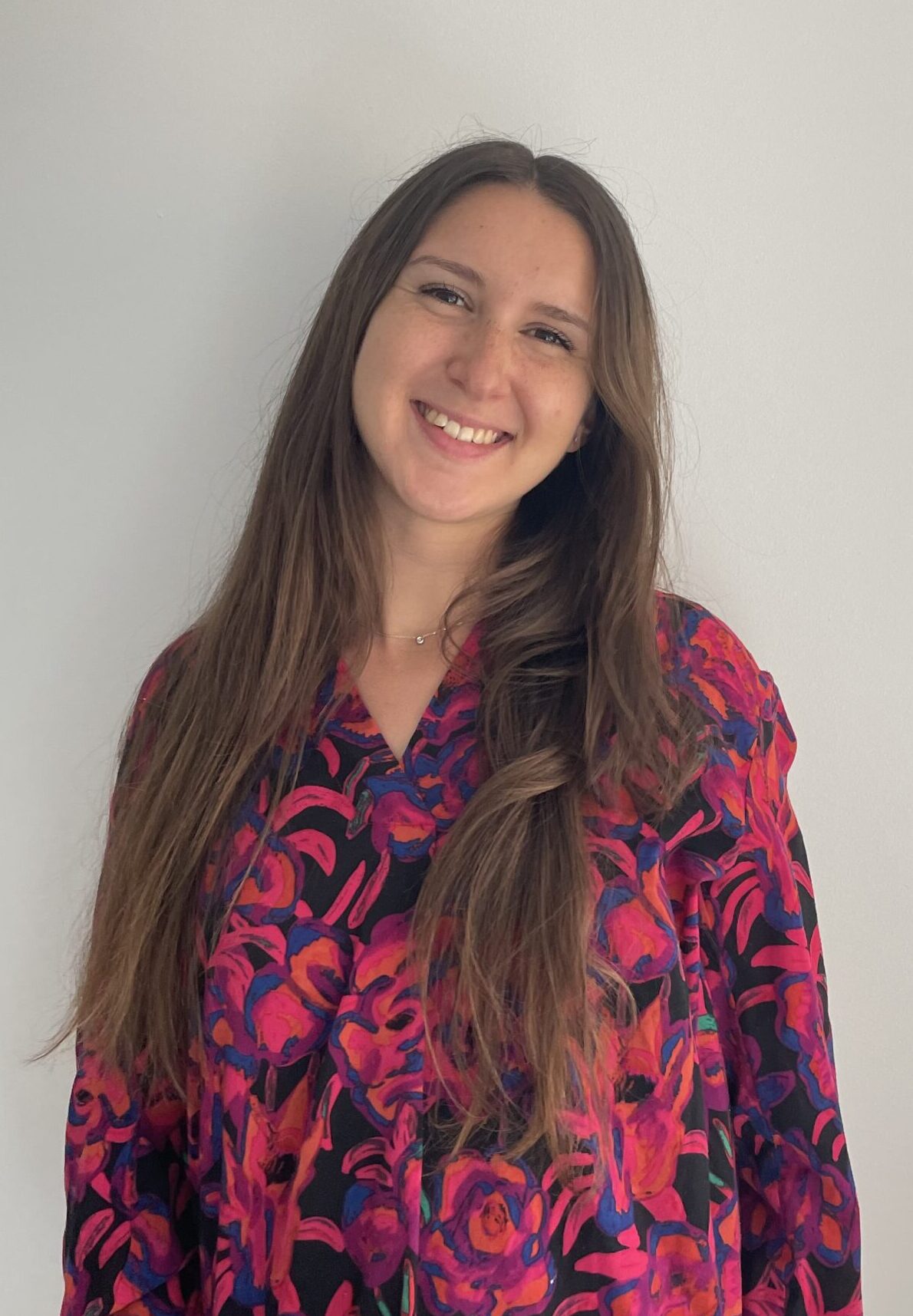
Lola Hehn, student in the Civil Engineering program (Prom19), student at SciencesPo
I joined Mines Nancy in 2019 after two years of
preparatory classes and I spent two years there that were rich
in both intellectual and human terms.
For the third year, I took advantage of the opportunity offered by Mines Nancy to do a double degree at Sciences Po Paris. I am currently studying for the Master’s in Finance and Business Strategy, and will thus obtain my degrees from Mines Nancy and Sciences Po Paris at the end of 2023. This double curriculum is very rich, since it brings me into contact with students from different personal and educational backgrounds. The double degree will allow me to consider a wide range of career opportunities.
Lola Hehn, Mines Civil Engineering student (class of 2019) and student at Sciences Po.
Via a CPGE preparatory cycle
Join the long-established general course: Mines Civil Engineering
The vast majority of engineering students enter the first year following the Concours Commun Mines-Ponts competitive entrance examinations.
Principal sectors of origin:
- Mathematics and Physics (MP)
- Physics and Chemistry (PC)
- Physics and Engineering Sciences (PSI)
The School also recruits from the Physics and Technology pool (PT) and the Technology and Industrial Sciences (TSI) sector.
Number of places per sector (2023):
- MP : 46
- PC : 39
- MPI : 8
- PSI : 42
- PT : 4
- TSI : 1
In 2022, Mines Nancy recruited from the top 1,343 for the MP sector, the top 749 for the PC sector and the top 788 for the PSI sector.
Via the INP preparatory cycle
Join Mines Nancy from the INP preparatory cycle
The CPP–INP preparatory cycle offers a high-level scientific education in two years in six cities: Nancy, Bordeaux, Grenoble, Saint Denis de la Réunion, Toulouse and Valence.
This preparatory course allows students to enter any of the 34 public engineering schools in the INP Group, including Mines Nancy. Every year, Mines Nancy recruits students ranked among the best on the INP preparatory course for its three engineering degrees.
These places are provided for our three engineering courses: Mines Civil Engineering, Engineering with a specialisation in Industrial and Materials Engineering and Engineering with a specialisation in Mechanical Engineering, Design Engineering pathway.
Number of places per course:
- Mines Civil Engineering: 8 places
- Engineering with a specialisation in Industrial and Materials Engineering: 5 places
- Engineering with a specialisation in Mechanical Engineering – Design Engineering pathway: 2 places
Via the university route
University graduate admission
Recruitment to the first and second years is open to university graduates according to a procedure common to 15 French engineering schools.
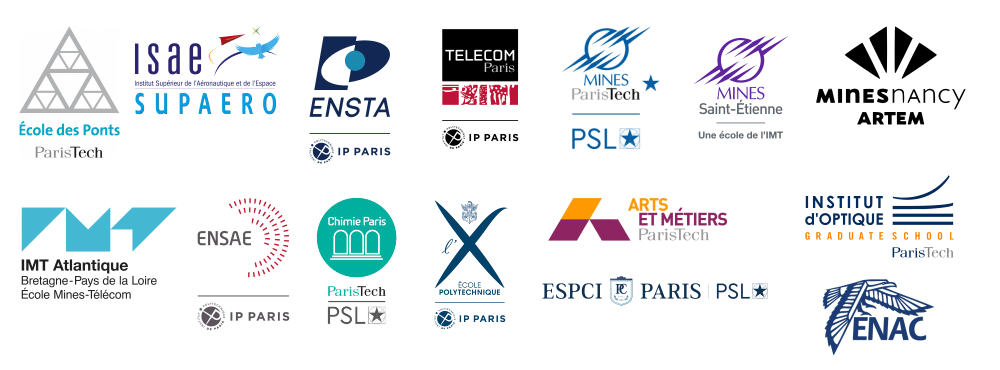
Admission into the first year: 5 places
Holders of an L3 Bachelor’s degree obtained in less than four years after the baccalaureate or equivalent qualification (mathematics, physics, mechanics or computer science).
Admission into the second year: 5 places
Holders of a first-year Master’s or four-year Bachelor’s degree obtained in less than five years or equivalent qualification (mathematics, physics, mechanics, computer science and engineering sciences).
Admission requirements
Candidates must have completed each year of their course with a grade or a mark greater than 12/20 and must pass a competitive examination which includes written and oral papers.
Via international exchange
International student admission (AST)
Admission to second year after having completed four years of higher education in a scientific and technical field.
Information : mines-nancy-dai@univ-lorraine.fr
Admission via DD, SD… Coming to study as an exchange student
Mines Nancy offers international students the option to choose electives from the catalogue of classes below as exchange students for one or two semesters:
All courses taken and validated credits will be made official in the form of transcripts so that credits can be recognised in the student’s home university.
UNDER A COOPERATION AGREEMENT
ACCESS CONDITIONS AND PROCEDURE
Cooperation agreements (ERASMUS, BRAFITEC, etc.) exempt students from part or all of the enrolment fees. For more information, please contact the international relations department of your home institution.
STEP-BY-STEP ADMISSION PROCEDURE
- Contact the international relations department of your institution to check whether it has a cooperation agreement (ERASMUS, BRAFITEC, etc.) with Mines Nancy and whether you are eligible to take part.
- Once you have been pre-selected, your home institution will send us your application file including the following documents:
Our completed enrolment form
• A CV and a cover letter written in French or English
• A copy of your reports and qualifications since you entered higher education
• A copy of your identity document (passport) - Your application will be examined by a jury, which will approve or reject your admission.
- If you are admitted, an acceptance letter will be sent to you by email and post.
ADMISSION TIMETABLE AND APPLICATION DEADLINES
- For admission to the first semester (from September to the beginning of February): 30 April
- For admission to the second semester (from February to the end of June): 30 November
Coming to study on an accredited programme
International students who meet the admissions criteria (given below) have the option to apply for enrolment on to the second year (M1) of the ICM programme as part of the double degree agreement (list of partners) or through one of the three parallel admissions procedures.
Admissions criteria :
- Have completed four years of higher education in the field of mathematics, mechanics, physics, engineering, civil engineering or computer science
- Demonstrate an excellent academic record
- Have a minimum level of B1 in French and English
UNDER A COOPERATION AGREEMENT
STEP-BY-STEP ADMISSION PROCEDURE
- Contact the international relations department of your institution to check whether it has a double degree agreement with Mines Nancy and whether you are eligible to take part.
- Once you have been pre-selected, your home institution will send us your application file including the following documents:
• Our completed enrolment form
• A CV and a cover letter written in French or English
• A copy of your reports and qualifications since you entered higher education
• A copy of your identity document (passport)
• A letter of recommendation (optional) - Your application will be examined by a jury, which will approve or reject your admission.
- If you are admitted, an acceptance letter will be sent to you by email and post.
ADMISSION TIMETABLE AND APPLICATION DEADLINES
- For admission to the first semester (from September to the beginning of February): 31 March
- For admission to the second semester (from February to the end of June): 31 October
Enrolment
Here is the step-by-step enrolment procedure for students and future students of the Mines Civil Engineering course.
Tuition fees
Tuition fees – payment of tuition fees
The tuition fees are €2,500. Scholarship students are exempt.
Information about tuition fees
Tuition fees can be paid:
- by bank card directly online (payment in three instalments is available only once, and only when enrolling online)
- Or by bank transfer – contact the school: mines-nancy-scolarite-ficm@univ-lorraine.fr
=> Access to your student number confirms that the payment has been received. Remember to click the “Finish” button at the bottom of the page.
=> Access to your timetable or your online courses (Arche) is only possible after your enrolment has been confirmed
Employability
Engineering students at Mines Nancy very often find work before they graduate
Average time to find a job
Salary
42 500 € : this is the average gross starting salary in France (including bonuses and benefits) for new graduates. First jobs abroad are paid an average of gross per year 62 500 € brut annuel.
Job locations
A solid training in languages, combined with a minimum stay of 10 weeks abroad, puts engineering students in the best possible position for an international career. A springboard that 20% of 2020 graduates took advantage of in their first job 30 % diplomas 2021
Sectors
Famous Alumni
- Jean-Claude Trichet (class of 61): Former Governor of the European Central Bank
- Jacques Bouriez (class of 63): President of the CORA group and the Fondation pour la Recherche Médicale
- Daniel Marie (class of 66): former CEO of Exxon Mobil Chemical
- Jean-François Abramatic (class of 68): former president of the World Wide Web Consortium
- Jean-Carlos Angulo (class of 68): Chairman of Fondation Mines (former Deputy CEO of the Lafarge group)
- Jean-Yves Koch (class of 68): Executive Director of Capgemini
- Bertrand Méheut (class of 72): former Chairman of the Management Board of Canal+ and Chairman of PMU
- Jean-Ludovic Silicani (class of 72): Councillor of State, former President of Autorité des Télécom
- Alex Fain (class of 74): General Secretary of the Safran Executive Committee
- Amina Benkhadra (class of 75): Director General of the Hydrocarbons Office, former Minister of Energy (Morocco)
- Xavier Mosquet (class of 75): CEO Boston Consulting Group, former advisor to Barrack Obama
- Gérard Kuperfarb (class of 80): Executive Committee of the LafargeHolcim group, co-president of Aggregates and Concrete
- Pascal Cotte (class of 81): CEO Boston Consulting Group (Western Europe, South Am, NAF)
- Frederic Duval (class of 89): CEO Amazon France
- Gilles Glin (class of 91): former General commanding the Paris Fire Brigade
- Philippe Baptiste (class of 91): CEO of the National Centre for Space Studies (CNES)
- Émilie Delorme (class of 94): Director of the National Conservatory of Music and Dance in Paris
- Caroline Flaissier (class of 97): CEO Engie Enterprises et Collectivités
- Pierre-Antoine Bataille (class of 98): Founder of Monalbumphoto.fr
- Thomas de Cointet (class of 00): CEO Fipromer (Bred Banque Populaire)
- Elodie Geffray (class of 01): CEO Eneryo (and writer)
- Michael Fernandez-Ferri (class of 06): CEO Drust
- Bertrand Galley (class of 06): CEO Kujjuk
- Lucie Poulet (class of 07): Researcher at NASA
Intermines
Intermines: a network of leading graduates
Intermines brings together graduates from Mines ParisTech, Mines Nancy and Mines Saint-Étienne.
Intermines is:
- over 35,000 students and graduates
- Regional and international groups
- A careers service
- Sector-specific and themed professional clubs (X-Mines-Ponts au Féminin, X-Mines Entrepreneurs, etc.)
- Sponsorships
- Clubs for leisure activities and hobbies
- A shared directory
- Support services (X-Mines credit, student aid, aid for graduates, etc.)
- An email address for life to keep in touch
- 10,000 targeted job and internship offers
Mines Nancy Alumni Network
Mines Nancy Alumni aims to develop the community of Mines Civil Engineers, to strengthen relations with the School and to promote professional and personal contacts between its members. But the association also maintains privileged links with the Fondation de l’Industrie, which supports the School’s projects and investments.
Apply
Written examinations
The admission tests (written tests) take place:
from 02 may 2023 to 05 may 2023
Admission results
Admission results:
06 june 2023 from 6 p.m.
Oral examinations over a week
Oral examinations over a week:
from 19 june 2023 to 15 july 2023
Admission results and first call
Admission results:
19 july 2023 from 6 p.m.
Date of first call:
24 july 2023 at 2 p.m.
INP Preparatory Cycle
Every year, Mines Nancy recruits four or five students from the best ranked CPP (INP preparatory cycle) at the 6 INPs (National Polytechnic Institutes) in Grenoble, Toulouse, Nancy, Bordeaux, Valence and Saint-Denis de la Réunion.
GEI Univ university admissions
Mines ParisTech, Mines Nancy, Mines Saint-Etienne, Arts & Métiers ParisTech, Ecole des Ponts ParisTech, Ecole Polytechnique, ENSAE ParisTech, ENSTA ParisTech, ESPCI Paris, Institut d’Optique Graduate School, ISAE-SUPAERO, IMT Atlantique and Télécom ParisTech organise a common application procedure and written admission tests for recruitment:
- Into the first year: Five places available at Mines Nancy
Admission: L3 Bachelor’s degree (mathematics, physics, mechanics or computer science) obtained in less than four years after the baccalaureate or equivalent qualification. - Into the second year: Five places available at Mines Nancy
Admission: First-year Master’s or four-year Bachelor’s degree (mathematics, physics, mechanics, computer science and engineering sciences) obtained in less than five years or equivalent qualification.
Contact
You want to contact us about the program Mines Civil Engineering (ICM)? Please fill in form below:
